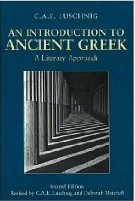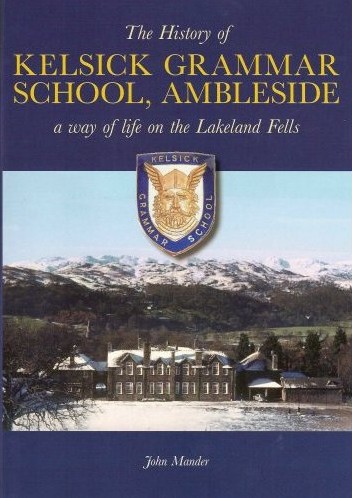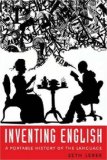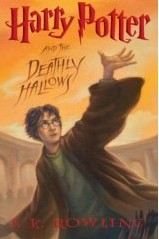Books read recently by J. Zimmerman.
Reader's Bill of Rights [after Daniel Pennac in Better than Life
from November 2003 Utne Magazine] includes the rights to:
{ September : septiembre (see also books on learning Spanish) 2008 }
(9.30.2008)
(9.29.2008)
(9.28.2008)
- Parts of
The Complete Poetry of César Vallejo: A Bilingual Edition,
edited and translated by Clayton Eshleman.
See it particularly for
- Some stunning translations.
A favorite: "Piedra Negra Sobre Una Piedra Blanca".
- The helpful notes (not to much, not too little).
- The useful chronology (by Stephen M. Hart).
- The joy, as always, of a copy of its original facing each translation.
(9.27.2008)
- Insightful essay by John Le Carré: "The Madness of Spies:
A Secret Service Case" in the 29th September 2008 The New Yorker.
The well-earned conclusion:
|
The trouble is that the reader, like the general public to which he belongs,
and in spite of all the evidence telling him that he shouldn't,
wants to believe in his spies: which, come to think of it,
is how we went to war in Iraq.
|
(9.26.2008)
| Day 1 of
Ancient Greek Course.
An Introduction to Ancient Greek:
A Literary Approach
by C. A. E. Luschnig.
Book blurb:
C.A.E. Luschnig's An Introduction to Ancient Greek: A Literary Approach
prepares students to read Greek in less than a year by presenting basic
traditional grammar without frills and by introducing real Greek written by
ancient Greeks, from the first day of study.
|

|
(9.25.2008)
(9.24.2008)
(9.23.2008)
 In Two Minds (2008), responsive
tanka
by Amelia Fielden and Kathy Kituai.
In Two Minds (2008), responsive
tanka
by Amelia Fielden and Kathy Kituai.
(9.22.2008)
- Abandoned
Darkmans (2007)
(short-listed for the 2007 Booker Prize)
by Nicola Barker.
An experimental novel that I struggled with for 200 pages (a quarter of this 838-page tome and tomb),
till I just wanted it out of my house.
Every character is eccentric (with one or more obsessions or phobias) and its own personal percussion section
ushering it through the world; the cacophony is annoying.
It feels like Baker is having a lot of private fun in there.
But out here it looks like graphomania.
Save yourself some grief: read the Guardian review by Patrick Ness at
http://www.guardian.co.uk/books/2007/may/05/featuresreviews.guardianreview3:
it turns the plot into something resembling sense:
a much better option than reading the whole book.
That review includes:
"Barker, as ever, is far more interested in the
flexibility of language than in simple, straightforward definitions".
And tips its hat at such as I:
"Darkmans is just the sort of bravura performance that will probably inspire
vitriol in a certain breed of reviewer as too ostentatious, too brazen. Pity
them, reader, for being unable to embrace such a loud shout of glorious, untidy,
angry, joyous life. Barker is a great, restless novelist, and Darkmans is a
great, restless novel."
Sure, I admire some interesting textual experiments:
e.g., one man's eloquent spoken Turkish is presented in a bold and baroque font, yet in English,
showing the English-speakers' ignorance of the richness of non-English speech.
Cute.
And Barker has fun with names:
the man passing for the protagonist is called
Beede, who is not the first English historian, 8th-century Venerable Beede, but a modern one;
an exgirl-friend of his son is Kelly Broad;
a forger is Peta Borough (Peterborough, geddit);
a 5-year-old prodigy is called Fleet.
The Amazon-cited review from
Publishers Weekly comments that one character is a
"young ... spooky prodigy who, in one of this intricate tale's several instances of
mind-bending nuttiness, may actually be Isidore's [his father's] ancestor from nine generations
ago. This improbable premise is supported by the boy's propensity for quoting
bits of the biography of King Edward IV's court jester, one John Scogin, the
dark man who haunts the book"
and who [it turns out] is the same John Scogin as Beede is researching.
None of which helps me turn another page.
Even though Salon's Laura Miller calls it
"a major novel, a savory hybrid of Zadie Smith and David
Foster Wallace (with a dash of Stephen King)".
In the NYT Sylvia Brownrigg's review implies that Barker needs champions:
"Her [Barker's] champions in Britain include Romesh Gunesekera (who nonetheless described
reading Darkmans as 'a bit like watching half a cricket match with no
scoreboard') and Ali Smith, whose allusive, angled fictions have something in common with Barker's."
(9.21.2008)
(9.20.2008)
(9.19.2008)
(9.18.2008)
- Finished listening to
Blood Meridian or the Evening Redness in the West
by Cormac McCarthy, read by Richard Feronne.
Noire.
Written with attention to the cruelties of the greedy
who want nothing to live without their permission;
the despoilers of bodies, lands, and souls.
An ordeal to get through, though said by some to be one of the greatest novels of the 20th century.
(9.17.2008)
 What It Is by Lynda Barry.
What It Is by Lynda Barry.
Inspiring visual workshop for writers.
(9.16.2008)
(9.15.2008)
- Burn After Reading (film).
What a romp! What a blast!!
Wickedly hilarious about divorce lawyers, gigolo husbands, wives with careers, bossy doctors,
the Russians, the CIA, cyclists, fitness coaches, plastic surgeons, Princeton alumni,
TV morning shows,
Internet dating services, private investigators,
home workshops, and those hopelessly in love.
Favorite moments include:
- Brad Pitt (as Chad Feldheimer) repeatedly trying to narrow his eyes
to match those of John Malkovich (as CIA agent Osborne Cox).
- John Malkovich (as CIA agent Osborne Cox) tramping off his boat in relaxed attire
with his "new set of keys".
- And of course The Phone Call: Brad Pitt and
Frances McDormand (Linda Litzke) contacting John Malkovich;
a lesson in how quickly a Good Samaritan can be misunderstood
by someone CIA-trained and having a bad day.
And grouchy David Denby (The New Yorker, Sept 15, 2008, pp. 96-97)
is surely completely wrong -- the Coen Brothers love many
of their characters and especially the three main women:
- Frances McDormand (Linda Litzke in the film; Mrs. Joel Coen off-screen)
- Tilda Swinton (the bossy Dr. Katie Cox, wife to John Malkovich's Osborne Cox)
- Elizabeth Marvel (Sandy Pfarrer, book author; wife to George Clooney's Harry Pfarrer)
all get what they want.
(9.11.2008 to 9.14.2008)
(9.9.2008)
(9.8.2008)
Abandoned various books due back at the library:
- Awakening Loving-kindness
by Pema Chödrön.
- Lovingkindness: the Revolutionary Art of Happiness
by Sharon Salzberg.
- The Places That Scare You: a Guide to Fearlessness in Difficult Times
by Pema Chödrön.
(9.7.2008)
(9.6.2008)
(9.5.2008)
(9.4.2008)
(9.3.2008)
(9.2.2008)
Finished dipping into a couple of books to return:
- The Last Season
by Eric Blehm:
in 1996
Randy Morgenson, a High Sierra SAR (Search and Rescue) seasonal ranger,
disappeared in the Sierra.
Despite a significant SAR operation,
his body was not discovered till 5 years later.
- Fundamentals of Applied Probability Theory
by Alvin W. Drake.
(9.1.2008)
{ August : agosto (see also books on learning Spanish) 2008 }
(8.31.2008)
(8.30.2008)
(8.29.2008)
- Day 15 and Final Exam Day of
Encountering Antiquity Course (summer intensive).
- Day 15 and Final Exam Day of Climate and Weather Course (summer intensive).
(8.28.2008)
(8.27.2008)
(8.26.2008)
(8.25.2008)
(8.24.2008)
- Haiku
Two Autumns reading of HPNC.
(8.23.2008)
Tim Ocel directs this super production of
William Shakespeare's All's Well That Ends Well.
As a dark comedy, it plunges deeply into relationships and into the confrontation of those behaving
in a damaging, disloyal, and dishonest way.
The picture above shows Paroles, the braggart, betraying (he believes) to a rival army his fellow soldiers and friends.
He is about to be confronted by those he betrayed, particularly Bertram, the young man who has betrayed his marriage.
This, in retrospect, is the start of Bertram coming to his senses,
and helps him accept and (dare we say) rejoice in his wife.
Four good female roles (Helena, Diana, Diana's widowed Mum, and Helena's mother-in-law, the only one not in the photo below)
were well-acted in this production, and exemplify the best of morality, tenacity, and creativity:
This production is an excellent companion to SSC's
Romeo and Juliet.
In both, there is a marriage between people of two families where
intermarriage would not be expected.
There, however, the parents disapprove of the wedding.
But here, the parents and surrogate parents approve of the wedding, and the bridegroom resists it -- hence this play
with its exploration of loyalty and commitment.
(8.22.2008)
(8.21.2008)
(8.20.2008)
(8.19.2008)
- Finished
The Reluctant Fundamentalist (2007)
(short-listed for the 2007 Booker Prize)
by Mohsin Hamid.
A fascinating meditation on empire, the children of empire, and the view from the outside.
This is a more interesting experiment in literature, and a more original commentary on the state of the world,
than (in particular)
The Gathering (by Anne Enright),
its competitor for and the actual
winner of the 2007 Booker Prize.
The Reluctant Fundamentalist
is told by a man who has experienced great education in the hands of the world.
While he is playfully suspicious of the man whom he addresses,
it remains unclear at the story's end why the man addressed remains with the narrator:
perhaps he has a mission to assassinate the narrator?
perhaps he knows that he is to be assassinated?
all we can say is that something is about to go down, with the most explicit hint
coming with an overly sweet dessert [p. 138]:
|
After all, one reads that the soldiers of your country are sent to battle
with chocolate in their rations, so the prospect of sugaring your tongue before undertaking even the bloodiest
of tasks cannot be entirely alien to you.
|
The narrator's attitude is clear fairly early on: he would like to be part of a moneyed nation of "deciders"
yet from the start he is in conflict with its citizen's values [p. 21]:
|
there were details which annoyed me.
The ease with which they parted with money
... Or their self-righteousness in dealing with those whom they had paid for a service
... [and] insisting things be done their way
... upstarts
... devoid of refinement
... conduct[ed] themselves in the world as though they were its ruling class.
|
Someone with the narrator's experience would see the following description
(of Pakistan from the father of the North American girl that is unable to have the relationship with the narrator that he desires),
as appropriate for the U.S.A.:
"Economy's falling apart, no?
Corrupt, dictatorship, the rich living like princes while everyone else suffers.
... the elite has raped that place well and good, right?
And fundamentalism.
You guys have got some serious problems with fundamentalism."
...
his tone -- with, if you will forgive me,
its typically American undercurrent of condescension --
struck a negative chord with me.
|
At the turning point of the story, which was bound to happen, given the above, comes:
I stared as one -- then the other -- of the twin towers of New York's World Trade Center collapsed.
And then I smiled. Yes, despicable as it may sound, my initial reaction was to be remarkably pleased.
... my thoughts were not with the victims of the attack
... no, I was caught up in the symbolism of it all,
the fact that someone so visibly had brought America to her knees.
Ah, I see I am only compounding your displeasure.
I understand, of course; it is hateful to hear another person gloat over
one's country's misfortunes.
But surely you cannot be innocent of such feelings yourselves.
Do you feel no joy at the video clips -- so prevalent these days --
of American munitions laying waste the structures of your enemies?
|
Ultimately, one wonders how reliable is this narrator, how much of what he says is what he believes happened
to him, and how much is simply a tale of invention to delay,
in Scheherezada-like style, a death. So much of the story could be
invention (or even delusion), yet so most of the people (apart from Erica) and places seem real.
(8.18.2008)
(8.17.2008)
- Finished listening to
The Gathering (2007)
(winner of the 2007 Booker Prize)
by Anne Enright,
performed beautifully by Terry Donnelly.
An eructation, a tattered dress, a cacophony of
memories, reconstructed and imagined,
and of complaints and blame on the mother and the maternal grandmother,
on the dead brother, on various other relatives and family acquaintances.
Interesting but not a clear
Booker Prize winner.
|
Happiness in a man does not do it for me.
|
(8.16.2008)
Kim Rubinstein directs this magnificent production of
William Shakespeare's Romeo and Juliet.
The first delight is this production's physicality, for the play
opens not with words but with the cacophony of an outdoor market place,
the fruit- and dagger-wielding women,
the rough-housing young men,
the knife juggler,
the sword-fighting gangs, and the Prince
(the commanding Gene Gillette also seen in
Burn This)
forcing the gang fight to a crashing halt.
This energy continues in the rough-tumble interaction among Romeo and his comrades,
the marvelous conceit of their donning fluffy wings of Eros (Mercutio's tinged with blood-pink edges),
and their take-over of the formal dance at Capulet's house.
As for the plot, yes, it's supposedly well-known.
Yes, it's a tragedy of blood vendetta and banishment; of forbidden love and midnight marriage; of death by sword, dagger, and poison;
of servants and a priest whose loyalties are not reliable to those they serve.
But this production is the first to make clear the tragedy of the marriage between the inconstant Romeo with the
ditsy [see
ditsy footnote] Juliet:
- Romeo (Charles Pasternak) is a dilettante at love and a professional at being in love.
Besotted (that day) with the girl Rosaline, he gate-crashes the party where she
is supposed to be.
But this is at Juliet's parents,
where Romeo turns on a florin and focuses his desire on a different beautiful girl, Juliet.
This guy might be romantic fun for a night or two.
But a lifetime of devotion? -- I think not.
Juliet was doomed to grief from the moment she married him.
- Traditionally we think of Juliet (Caitlin FitzGerald) as being under-age for marriage.
Certainly this Juliet is child rather than woman in the opening scenes.
But in the culture portrayed,
there seems no under-age frisson: Juliet parents offer her in marriage
to another man at the time she marries Romeo.
Her tragedy is not in making an under-age marriage.
It's in picking Romeo.
And what of other highlights? Best are:
- Mercutio: the lithe and lively Stephen Bel Davis (also seen in
Burn This) plays the flirtatious friend and
perhaps sex-partner of Romeo.
- Nurse: the spicy Saundra McClain give her words and actions great richness, despite her fickleness of loyalities.
- Capulet (Juliet's father): John Pribyl makes a strong portrayal of a demanding father.
The Juliet Defense: Use of the word "Ditsy" is protested
by
Chloé Trois, i.e. Chloé-Eloise.
|
"However I would not call Juliet ditsy. She is 13, even a wise 13, but still only 13.
Fresh, open to the world's delights, her eagerness not yet tainted by cynicism;
but naive, not able to tell the difference
between playing house with her girlfriends (or reading teen romances) and a real marriage to a man, with all the weight
[no Shakespearean pun intended? j.z.] it carries."
|
(8.15.2008)
(8.14.2008)
(8.13.2008)
(8.12.2008)
- Burn This: a play
by Lanford Wilson
After seeing
Shakespeare Santa Cruz's production of
Lanford Wilson's
Burn This,
I had to read it.
It is great on the page, though Anna comes across more strongly than in the production I saw.
And yes, I do still find Burton self-centered and dislikable.
Pale has something useful to say about talkers (it being a rather talky play):
|
There was this character runnin' off at the mouth. ...
I gotta come to the conclusion that I'm weird.
Cause I try to communicate with these jerkoffs in what is essentially
the mother tongue, but no one is picking me up;
they're not reading me.
There's some mystery here.
Okay, sometimes they're just on a rap.
I respect rap.
You're not supposed to be listening.
You can read the paper, watch TV, eat pistachios.
I'm not talking that.
I'm talking these jerkoffs think you're listening.
|
And Anna reads Pale:
|
There is no doubt in my mind that you have completely mastered half the art of conversation.
|
But later when Anna tells Pale that they can't get along because:
"We're apples and oranges", Pale asks:
|
Have you ever had that apple tart, glazed with marmalade?
|
Some of the best lines are from Larry, such as, in response to Pale's
"What the fuck do you fuckin' know? Fruit?":
|
That's one of those questions one never knows whether to answer with hubris or humility.
|
and near the end:
| This isn't opera, this is life, why should love always be tragic?
|
(8.11.2008)
(8.10.2008)
Wow! Heard Itamar Moses (author of
Bach at Leipzig )
at Capitola Bookcafé.
Some quotations from Moses:
- "If the audience is bored, the play is boring."
- "If you can't express or stage something, 'stage the problem'"
- "yes -- no -- incredible decisions are being made in ways that are incredibly petty."
[Both regarding events in
Bach at Leipzig
and events in modern politics.]
- "The nice thing about theatre is that it's full of non-competing collaborators."
- The characters in
Bach at Leipzig
are: "Theatrical archetypes that complicated and deepened."
- And regarding to the overlaid (7 voices) section:
"I wanted the audience to hear the years [as they passed by], the overlapping voices, the pure sound".
[It sounds like his stage directions would have made this clearer; sadly the local director ignored them!]
(8.09.2008)
- Finished Life & times of Michael K
by J.M. Coetzee, a frequent
Booker Prize nominee
and winner of
the 1983 Booker Prize (with Life & Times of Michael K)
as well as
the 1999 Booker Prize (with Disgrace).
Other books by Coetze read:
Michael is smart and inventive. In other times he would have been a successful gardener or farmer or mechanic.
But his times are broken and in that context his survival is a miracle.
The brief middle section, with a separate narrator, is instructive and focus-altering, with its
calculated and miscalculated compassions.
(8.08.2008)
(8.07.2008)
(8.06.2008)
(8.05.2008)
Anatomy for Yoga with Paul Grilley.
This is the most useful DVD you will ever see on Yoga: it shows you how different our bodies are,
and why some people MUST be allowed the freedom to adapt poses to avoid injury to the unadaptable
bone-meets-bone part of the anatomy.
(8.04.2008)
(8.03.2008)
(8.02.2008)
- The Hot L Baltimore: a play
by Lanford Wilson
After seeing Shakespeare Santa Cruz's production of Lanford Wilson's
Burn This,
I wanted to read on of Wilson's earlier plays and found his famous
The Hot L Baltimore.
Both plays use the fashions of Realism,
like real elapsed time, toleration of silence, people over-talking each other, etc.
Although The Hot L Baltimore
was once a bold new play, in just a few decades it has become nothing special.
Burn This, however, is a much stronger and more resonant play.
And will last longer.
(8.01.2008)
{ July : julio (see also books on learning Spanish) 2008 }
(7.31.2008)
Burn This is the fiercest play in
Shakespeare Santa Cruz's
2008 season.
It is powerful and difficult, and it strongly resonates and reverberates days afterward.
This is an important play to see for its treatment of passion and love, loyalty and betrayal.
But more especially it is important for its treatment of anger.
All too often in drama, anger is simply an inflammatory tool that powers the plot.
And anger is indeed one of the cylinders that
Burn This runs on.
But more importantly, Burn This
concerns the recognition, the acknowledgment, the acceptance, the living through, of anger.
And the one person that does this, that can do this, that is the heart, the Heart, of the play, is Anna,
the only woman in this four-character play.
In preview, the strongest of the four actors were
- the aggressive Gene Gillette, stunning as Pale, the gun-pocketing guy from New Jersey and
- the charming Stephen Bel Davis, a delight as the gay Larry.
Yvonne Woods (Anna) was weaker, particularly in the first third,
where the play has distressingly more narration rather than action;
it will be important for her to enters the role more fully, so that she inhabits (instead of "acts")
the central role of Anna.
David Arrow (Burton) seemed comparatively weak and rather artificial; I don't think it's just that his character is unlikable,
though I have a copy of the play script on order so I'll be very curious to see how the parts read on the page.
As with
Bach at Leipzig,
it's important not only to see
Burn This, but to try to see it a second time,
to appreciate more of its depth, complexity, and wisdom.
(7.30.2008)
(7.29.2008)
- 2008 Booker Prize
long list announced.
(11.26.2008)
- Read
Lilliput Review Issue 163 (July 2008),
the tiny journal of tiny poems edited
by Don Wentworth.
One of the best issues, including poems of Yosano Akiko,
Bart Solarczyk, Jeffrey Skeate, Alan Holder.
- Read Lilliput Review #164.
(7.28.2008)
(7.27.2008)
- Finished listening to
Oxygen by Andrew Miller,
a 2001 Booker Prize nominee
and a nominee for the Whitbread Novel Award,
read by Gordon Griffin; while Griffin in good at giving a variety of authentic-sounding British accents and
almost-reasonable approximations of USA accents, his fairly dead-pan reading
does not do sufficient justice to the intelligent writing and the braided lives of the four main characters.
(7.26.2008)
(7.25.2008)
Having heard great things about this play and loving Bach, blogger
Jean Vengua
and I were delighted to see it tonight.
The first half of SSC's
Bach at Leipzig
is witty and amusing.
But after the intermission, the play opens into incandescence!
The story shows seven musicians competing in Leipzig for a prestigious job
and intriguing in various combinations to defeat the others.
Both we and the audience around us laughed, chuckled, giggled, and guffawed for almost the entire play.
The wit is in the words and in the body language of the actors,
particularly the lithe and graceful Drew Foster (Steindorff),
the nimble-fingered Allen Gilmore (Lenck),
and "first voice" Stephen Caffrey (Fasch).
Don't be alarmed by reports that this play is written to echo the form of a musical fugue.
You don't need to know anything about music to see and delight in this play.
Moses does not presume that his audience has musical experience: he structured his play as a fugue,
with each actor being one of the intertwining voices of a fugue.
Some distance into the play, Moses has one of his actors
(appropriately, the first one to speak) describe how a fugue is organized,
with the actors pantomiming a recapitulation (as a fugue does) what has occurred already.
Particular delights include:
- A beautifully choreographed and executed six-way sword fight:
arguably the strongest and most illuminating of all the ways in which Moses'
script echoes the musical form he has chosen.
- Brilliant ballet throughout the sword fight from one musician that 'wants to be a dancer'.
- A souped-up recapitulation of the first half, that not only lets us revisit the
wittiest events; it also describes the challenges that this band of musicians has each conquered.
- The wigs! In addition to the sumptuous costumes each actor has his own unique wig.
My favorites are:
- Sean Gorski (The Greatest Organist in Germany), regal in angelic golden locks.
- Allen Gilmore (Lenck), dishy in black curls.
- Mike Ryan (Graupner), astonishingly feminine in his ginger curls,
which somehow give him a resonance with Syndrome in The Incredibles.
- The scenery: uses the thrust stage beautifully, bringing the action including the prison scene and the fight,
close to the audience.
- The gradual recognition of repetition of motifs in different characters,
but with different responses occurring because the situation changes.
As Marco Barricelli says :
"Itamar Moses will be one of the great forces of theatre in the next decade".
(7.24.2008)
- Day 10 (final day) of
Environmental Ethics Course (summer intensive).
- Day 10 (final day) of
Linguistics Course (summer intensive).
Time to wrap up and return books to the library:
- Contemporary Linguistics: An Introduction
by William O'Grady, John Archibald, Mark Aronoff, and Janie Rees-Miller.
- Inventing English: a portable history of the language
by Seth Lerer.
Buy:
- Linguistics: an introduction to language and communication (2001)
by Adrian Akmajian. A practical text book.
- The language Instinct (1995)
by Steven Pinker.
Recommended for anyone contemplating studying linguistics [ISBN: 0061336467], to gain a good idea
of what linguistics is all about.
(7.23.2008)
(7.22.2008)
(7.21.2008)
Shakespeare Santa Cruz's 27th season is officially from July 16 - August 31.
Today's preview conversation gave a unique early view from executive artistic director Marco Barricelli
and actors for:
|
All's Well That Ends Well
|
These preview conversations are insightful and illuminating introductions to each of the 2008 plays:
- Shakespeare's Romeo and Juliet.
- Shakespeare's All's Well That Ends Well.
- Itamar Moses' Bach at Leipzig.
- Lanford Wilson's contemporary and edgy love story Burn This.
Index of 2008 season of Shakespeare Santa Cruz
(7.20.2008)
(7.19.2008)
(7.18.2008)
Shakespeare Santa Cruz's 27th season is officially from July 16 - August 31.
Today's preview conversation gave a unique early view from executive artistic director Marco Barricelli
and actors for:
Bach at Leipzig (Noon at the Nick).
playwright Itamar Moses' clever story of seven musical rivals in 1722.
Performing on the indoor Mainstage Theatre.
|
This sounds like an exciting staging of a brilliant play. Marco Barricelli says
"Itamar Moses will be one of the great forces of theatre in the next decade".
Audience members who had seen one of the previews were enthusiastic about the great quality of the drama,
the acting, the costumes and scenery, and the integration of music with action.
Highlights from the four actors who talked with us include:
- Bach at Leipzig is a Bay-area premier; its performances in New York and elsewhere
have been received with passionate enthusiasm.
- The play involves seven rivals for a pivotal music job.
- While Moses does not presume that his audience has musical experience, he structured his play as a fugue,
with each actor being one of the intertwining voices of a fugue.
Some distance into the play, Moses has one of his actors describe how a fugue is organized,
with the actors providing pantomime to recapitulate (as a fugue does) what has occurred already.
- The play ranges from the light-heartedness of goofy farce to great depth of thought and emotion.
- The play is "hysterically funny" with its wit and range, rivaling the
best of Tom Stoppard.
These preview conversations are insightful and illuminating introductions to each of the 2008 plays:
- Shakespeare's Romeo and Juliet.
- Shakespeare's All's Well That Ends Well.
- Itamar Moses' Bach at Leipzig.
- Lanford Wilson's contemporary and edgy love story Burn This.
Index of 2008 season of Shakespeare Santa Cruz
(7.17.2008)
(7.16.2008)
- Skinny dip (2004)
by Carl Hiaasen.
In Sick Puppy,
Carl Hiaasen addressed the destruction of Florida's coastal ecology by avaricious, mean,
Republican coast-line mega-property developers.
In Skinny dip, Hiaasen
addresses the destruction of Florida's Everglades, where a marine biologist's wife
discovers that he is altering water samples at the behest of an agro-business tycoon.
So the biologist kills his wife.
The novel has a plot worthy of Shakespearean, with evil villains, redemption of one, and true love (at least for
the moment) for eight of its characters.
See also his:
Basket Case.
(7.15.2008)
(7.14.2008)
- Sula (1973)
by Toni Morrison.
They didn't stone sinners for the same reason
they didn't commit suicide -- it was beneath them."
Toni Morrison, Sula
|
Morrison is arguably the most original and poetic prose writer in the U.S.A. at this time.
Sula (a National Book Award nominee)
is beautifully written: a stunning story of the struggle of African Americans in rural Ohio during the first half of the twentieth century.
The story shows the prejudices in that community, particularly against characters that they outcast:
Shadrack for his craziness and his obsession with death;
Sula for many sins but particularly that she, a black woman, sleeps with white men.
Equally importantly, it shows how the outcasts serve to stabilize the mainstream community;
Morrison shows strikingly how the critics of the outcast Sula
are improved by their rejection of her, becoming more responsible parents, husbands, wives.
And how those improvements are lost at her death.
So while the community could justify making her a scapegoat, it was to their immense advantage to do so.
(7.13.2008)
Shakespeare Santa Cruz's 27th season is officially from July 16 - August 31.
The preview talks give a unique early view of the vision of artistic director Marco Barricelli
for the season and of the directors and actors he has brought in:
Preview of Burn This
playwright Lanford Wilson's contemporary
and edgy love story.
Under New York-based director Michael Barakiva.
Performing on the indoor Mainstage Theatre July 30 - August 31.
|
This is going to be a great season, judging from the passion and clarity of
SSC Artistic Director Marco Barricelli, some of whose comments were:
- He's broadening the scope of SSC from three plays to four.
This is great news for theatre lovers.
- As previously, there will be two plays by Shakespeare. At least one of the two non-Shakespeare
plays in future seasons will be an American (he means USA) voice or on American topics or both.
- He demands plays that have "muscularity of language or muscularity of theme ...
scope or brilliance in their writing".
- "The Rubix cube of choosing a season is terribly complex ... and one of the important things is to make sure that
there are enough good roles for women." Question: what proportion of roles would be 'enough'?
- Because he's including Itamar Moses' Bach at Leipzig this season, and that play had seven strong roles for men,
it was important to him that the other non-Shakespeare play had a strong role for a woman: hence Burn This.
- But Burn This has only one woman's role in four: it sounds like the non-Shakepeare plays
have 10 strong male roles and only one strong female role.
This blog does not see that as balance!
- Watch this blog for future reports to see whether the gender balance is corrected in Barricelli's opening season!
Highlights of comments by New York-based director Michael Barakiva (for Burn This):
- Michael is in direct contact with playwright Lanford Wilson.
He quotes Wilson saying that he wrote Burn This at the top of each page to remind him to
"write about the most bold, the most personal, the most dangerous thing he knew ... and to pack the energy
... into four characters"
- Three images stuck with him from his initial readings: the retelling of the Flying Dutchman, the monolog on butterflies pinned to the wall,
and the time spent looking for a place to park. All images, he says, of limbo.
- He talked about resonances between Burn This and Romeo and Juliet,
particularly that each contain a scene where one who tries to intervene and prevent violence is then injured.
The four Burn This actors are all in Romeo and Juliet.
- In rehearsals he requires "a sense of etiquette ... and a sense of ferocity and explosiveness".
Index of 2008 season of Shakespeare Santa Cruz
(7.12.2008)
(7.11.2008)
Shakespeare Santa Cruz's 27th season is officially from July 16 - August 31.
But actually it starts today, with the first of several preview talks:
|
July 11: Preview of Romeo and Juliet
(Noon at the Nick)
|
These preview talks are insightful and illuminating introductions to each of the 2008 plays:
- Shakespeare's Romeo and Juliet.
- Shakespeare's All's Well That Ends Well.
- Itamar Moses' Bach at Leipzig.
- Lanford Wilson's contemporary and edgy love story Burn This.
Today's preview talk the SSC production of Romeo and Juliet
makes both the play and the upcoming season sound terrific -- full of creativity, energy, talent, and passion.
The new SSC Artistic Director, Marco Barricelli, seems very grounded and more open than his predecessor, the talented Paul Whitworth.
Particularly Barricelli talked frankly about the challenges of putting together a season
and his selection of four plays.
He expressed his need that for his first season, his directors
of the plays in the open-air forested Glen
(Romeo and Juliet and All's Well That Ends Well)
who had directed previously in that "unique" space.
Then, Romeo and two companions sat on the left of the stage, talking to us about their (in this production)
central-European gypsy status and relationships. There will be a lot of gypsy music in the show!
And Juliet on the right of the stage talked about the aristocratic nature of her family and relationships.
They production is "in tech" now, having moved out of the rehearsal space into the Glen.
Check the Shakespeare Santa Cruz site for the schedule of the plays themselves
and of additional preview talks:
- July 13: Burn This preview by Artistic Director Marco Barricelli and New York-based director
Michael Barakiva.
- July 14: S.C. Central Branch Library: UCSC Professor Emeritus Michael Warren discusses
Shakespeare's Romeo and Juliet and All's Well That Ends Well.
- July 18: Bach at Leipzig preview: Noon at the Nick.
- July 21: Bookshop Santa Cruz
hosts the Directors' Panel for Shakespeare's Romeo and Juliet and All's Well That
Ends Well: hear All's Well That Ends Well director Tim Ocel,
Romeo and Juliet dramaturge Karen Kettnich, and textual consult Michael Warren.
Index of 2008 season of Shakespeare Santa Cruz
(7.10.2008)
(7.9.2008)
(7.8.2008)
(7.7.2008)
(7.6.2008)
- Botany in the Field:
An Introduction to Plant Communities for the Amateur Naturalist
by Jane Scott.
(7.5.2008)
(7.4.2008)
(7.3.2008)
(7.2.2008)
- Watched first three episodes of
Series 7 of Red Dwarf
by Grant Naylor,
which (given 6 episodes each in Series 1-6) are:
- Tikka to Ride.
- Stoke Me A Clipper.
- OUROBOROS.
(7.1.2008)
 Links.
Links.
 Booker Prizes
Booker Prizes
 Chocolate.
Chocolate.
 Books read
Books read
 Best books read in 2008.
Best books read in 2008.
 Best writers of poetry and prose
Best writers of poetry and prose
 Harry Potter;
also
Harry Potter en Español.
Harry Potter;
also
Harry Potter en Español.
 New books on Christianity and Spirituality
New books on Christianity and Spirituality


 Why read a book?.
Why read a book?.
 The Mental Health of George W. Bush
The Mental Health of George W. Bush









